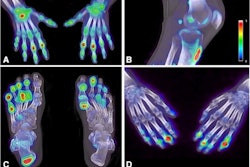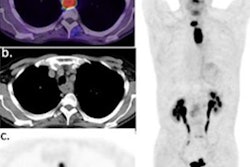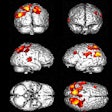Sunday, November 27 | 9:00 a.m.-9:30 a.m. | S1-STCE-3 | Learning Center Theater
In this talk, researchers will discuss how F-18 FDG-PET/MRI leads to therapy changes in breast cancer patients with elevated pretest probability for distant metastases.Dr. Julian Kirchner from the University Hospital of Düsseldorf in Germany will discuss his team's study, which explored how adding this imaging method to guidelines-recommended conventional staging leads to patient management changes. The group also compared the diagnostic accuracy of F-18 FDG-PET/MRI to conventional cancer staging.
Kirchner and colleagues analyzed data from a total of 208 women in two centers who had newly diagnosed breast cancer and had not previously undergone cancer therapy. The patients underwent a multimodality scanning regimen recommended by the current European Society of Medical Oncology (ESMO) guideline algorithm, as well as a whole-body F-18 FDG-PET/MRI scan that included a dedicated F-18 FDG-PET/MRI breast examination.
The study authors found that changes in therapeutic changes when combining the algorithm and F-18 FDG-PET/MRI were detected in five patients (2.4%).
Also, the combination guideline algorithm and F-18 FDG-PET/MRI were concordant in 135 of 208 (64.9%) patients. However, F-18 FDG-PET/MRI correctly determined staging in 81.9% of patients, while the guideline algorithm correctly determined staging in 62.5% of patients.
The researchers suggested that if available, F-18 FDG-PET/MRI can be done for staging purposes rather than combining CT and scintigraphy.
"Furthermore, in patients with strong clinical suspicion and large primary tumor, an additional examination by F-18 FDG-PET/MRI to exclude metastases should be considered," they added.
Stop by this talk on Sunday morning to get all the details.





















